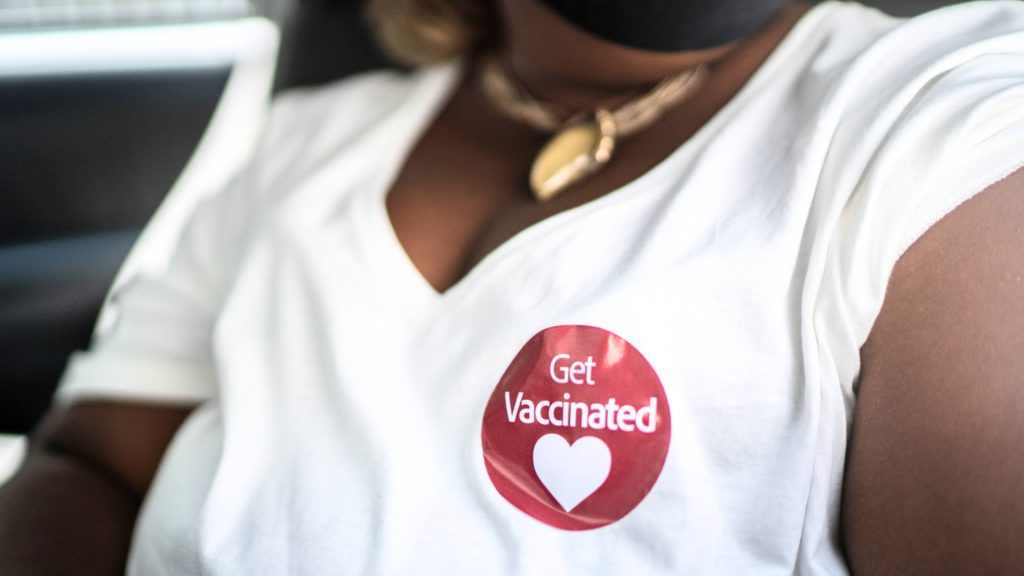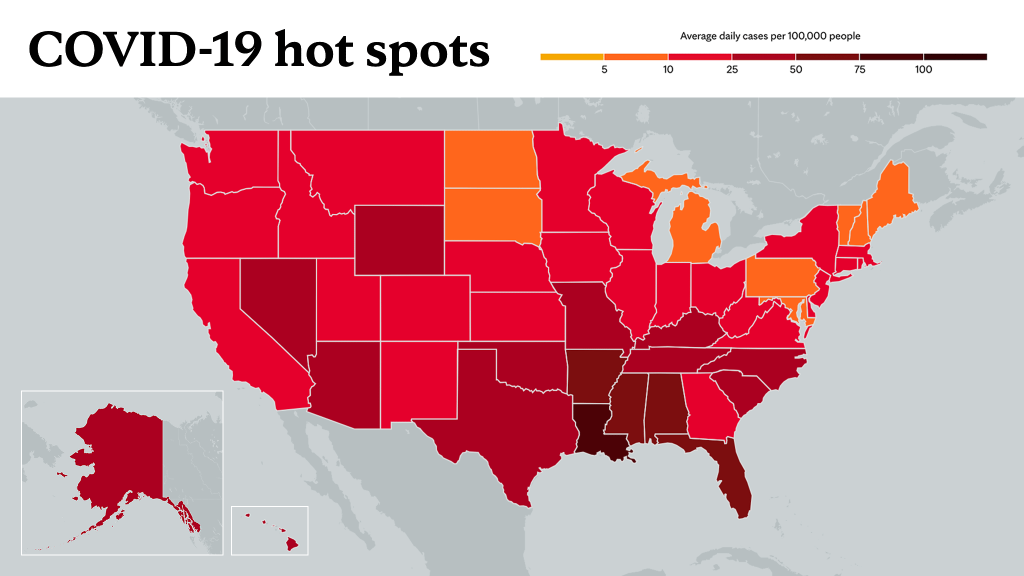
DEAR MAYO CLINIC: I am hearing more about the delta variant and am worried about my family's risk of becoming infected with COVID-19. My husband and I are vaccinated for COVID-19, but some of our extended family members are not. They don't seem concerned about the new variant. Can you share more information about it and the importance of being vaccinated for COVID-19?
ANSWER: Viruses constantly change through mutation, and new variants of viruses are expected to occur. Multiple variants of the virus that causes COVID-19 have been documented, including a highly transmittable form of COVID-19 known as the delta variant.
The delta variant, which was first seen in December 2020 in India, is spreading globally. It is more contagious than the previous strains of COVID-19 that have been detected in the U.S. It's also causing more severe illness and causing hospitalizations to increase.
Given the rapid spread of the delta variant, the need to be vaccinated for COVID-19 is even more urgent now.
Earlier this year, the U.S. was really at a pivotal moment in the COVID-19 pandemic. The U.S. was on the downtrend, with increasing COVID-19 vaccination rates and decreasing cases of COVID-19. But what has happened now is the U.S. has stalled with respect to COVID-19 vaccination rates. Only about half the population nationally has been fully vaccinated for COVID-19. As a result, the delta variant is spreading rapidly.
The U.S. is facing another wave of the COVID-19 pandemic. And those states that have lower COVID-19 vaccination rates are where the delta variant is spreading the most.
I'm often asked about how effective current vaccines are against the delta variant. The messenger RNA vaccines (Moderna and Pfizer) are highly effective against this variant. We have that information from clinical studies and laboratory tests of what we think the immune response should be. They're showing clinically in the U.K., where the delta variant has been taking hold for many months now, that those messenger RNA vaccines are still highly effective — over 80% for infection and 90% or so for severe disease.
We don't yet have large numbers of people in clinical studies to see what impact the Johnson and Johnson vaccine will have on the delta variant, but early immunology data suggest it also will be quite protective.
I know many people have been waiting to see how others respond to COVID-19 vaccination and what side effects happen to those who are vaccinated before they are vaccinated themselves. We've seen that most side effects are mild and no different than other immunizations. They're self-limited.
While there have been reports of other, more serious side effects, the incidence is still extremely limited. The benefits of vaccination far outweigh the risks.
The other concern I often hear is about the safety of the COVID-19 vaccine as it relates to fertility and pregnancy.
We have not seen any reproductive side effects from any of the COVID-19 vaccines, and that includes fertility and birth outcomes. There is no concern for the safety of women who are pregnant or women who are trying to conceive, or for future reproductive development.
Vaccines are particularly important for pregnant women, as they are at an increased risk for serious illness if they become infected with COVID-19. Pregnant women have altered immune systems, and that could make them more susceptible to COVID-19. Also, research shows that pregnant women with underlying comorbidities or medical health conditions are at higher risk of having worse outcomes if they are infected with COVID-19.
COVID-19 vaccines are incredibly safe. I recommend that everyone be vaccinated. I also recommend that regardless of your COVID-19 vaccination status, if you know you will be in areas with people who could be infected, continue social distancing and continue masking, as we know these safety measures also can help. — Dr. Melanie Swift, Preventive Medicine, Mayo Clinic, Rochester, Minnesota
____________________________________________
Information in this post was accurate at the time of its posting. Due to the fluid nature of the COVID-19 pandemic, scientific understanding, along with guidelines and recommendations, may have changed since the original publication date.
For more information and all your COVID-19 coverage, go to the Mayo Clinic News Network and mayoclinic.org.
Learn more about tracking COVID-19 and COVID-19 trends.








